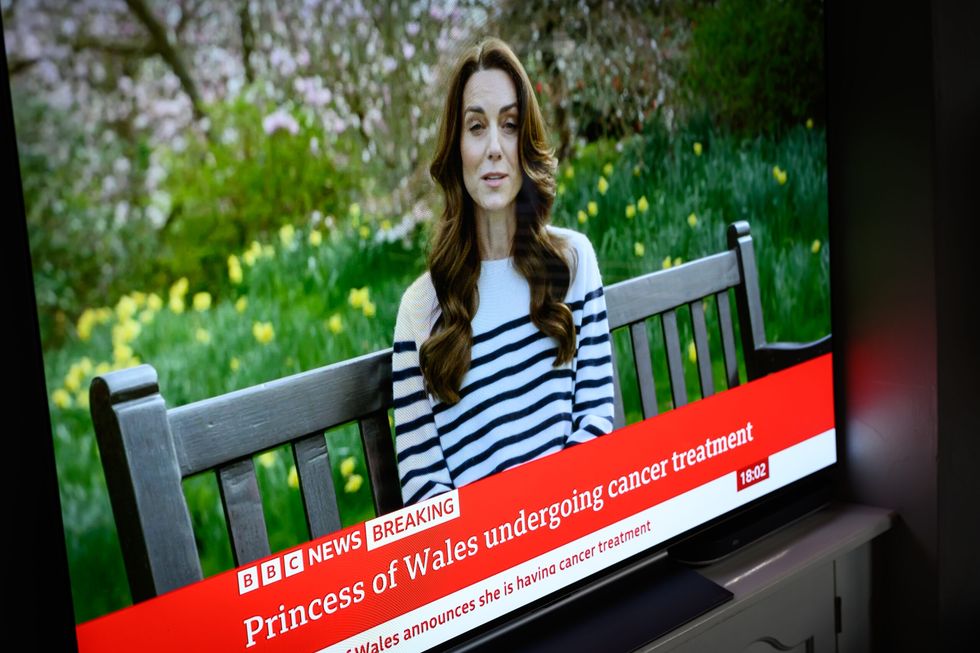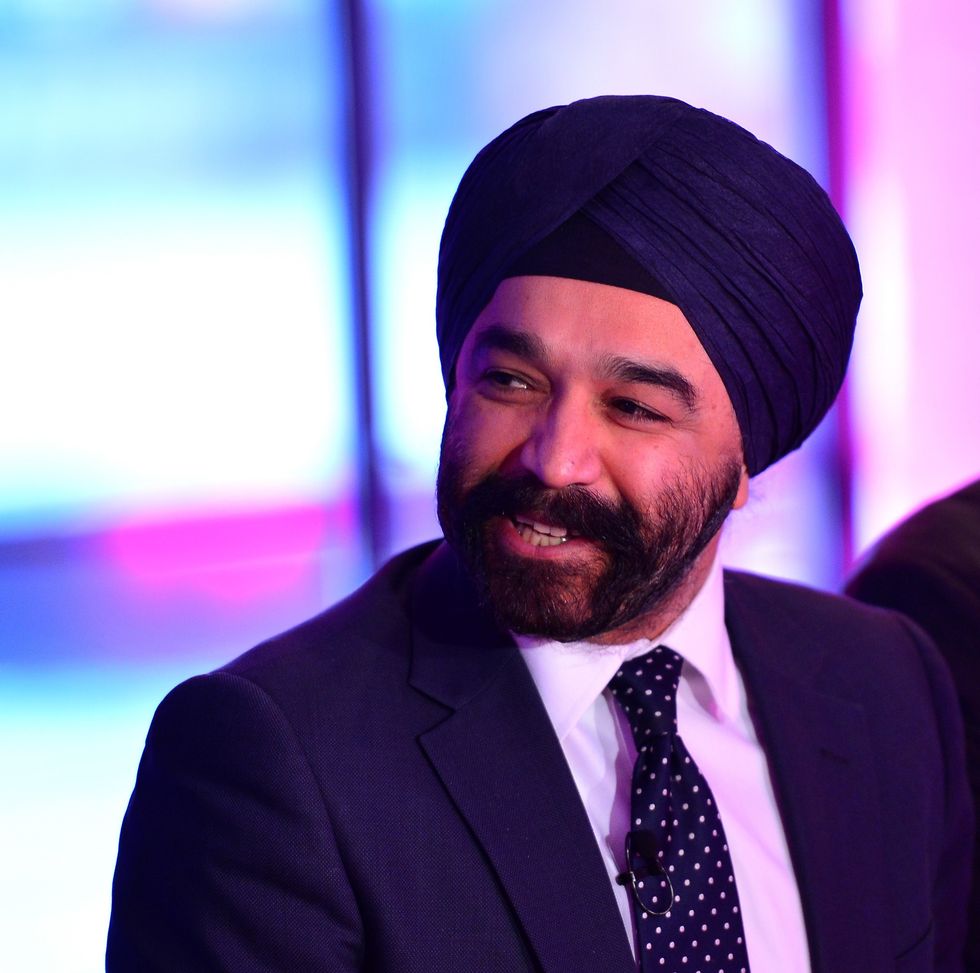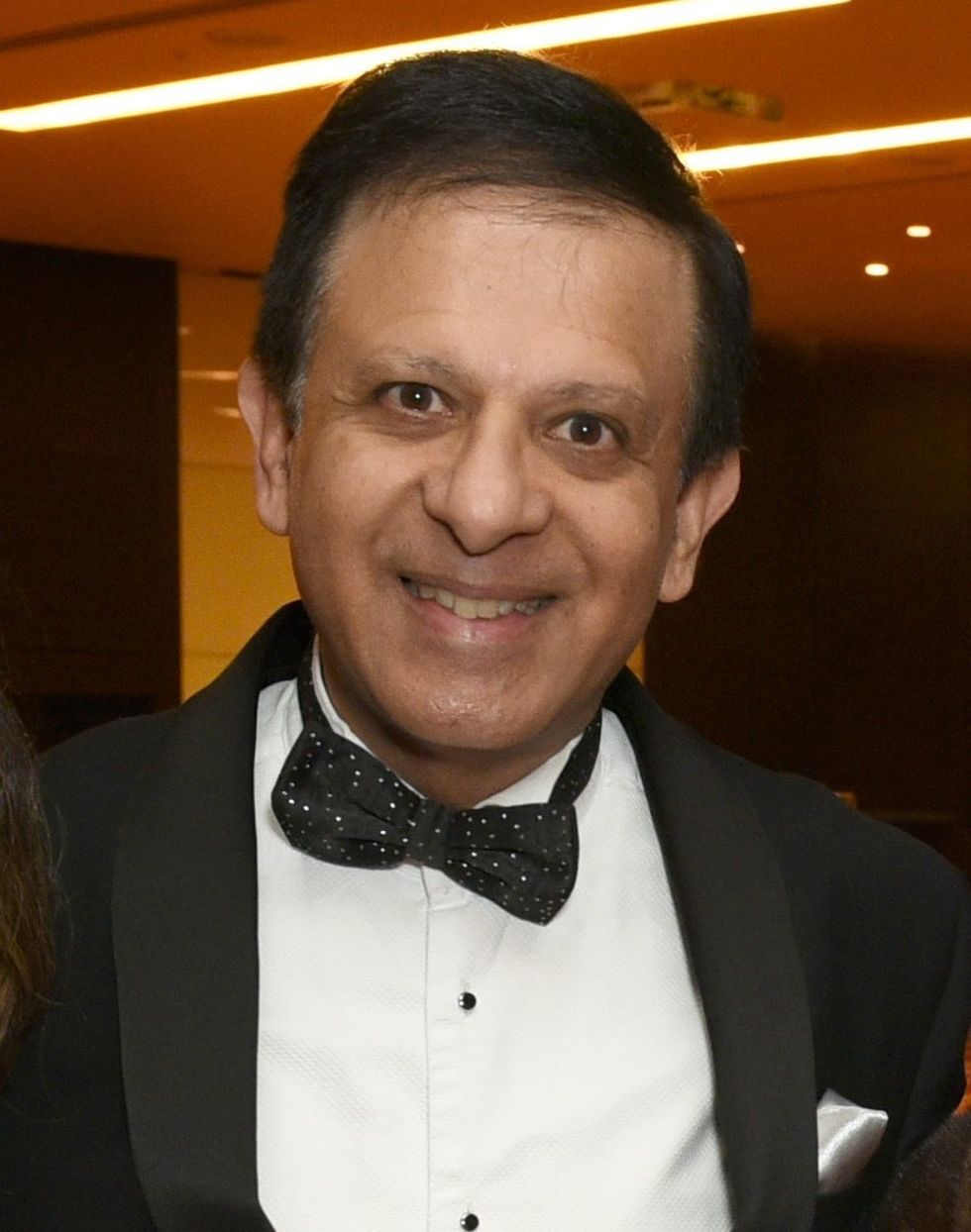CANCER screening services must be more culturally competent and sensitive to the needs of south Asians - especially women, a leading doctor has told Eastern Eye.
Dr Chaand Nagpaul, the first person of colour to lead the doctors’ union, the British Medical Association (BMA), said south Asian women were less likely to be aware of cancer symptoms compared to white females.
They are also less likely to attend breast and cervical cancer screening in comparison, he said.
His call comes as, Catherine, the Princess of Wales, revealed last week (22) that she was being treated for cancer.
“There's so much work to be done,” Nagpaul said. “We have an issue among south Asians, in that we do not talk about cancer.
“That's why we hide, and we have later presentation of symptoms.
“Our health service isn't particularly culturally competent in the way it presents information to ethnic communities.
“It isn't very sensitive to issues such as women may have issues about presenting with gynaecological complaints to a male doctor, there isn't enough understanding.
“Even before you get to that, accessing a GP, I was looking at the national data of satisfaction rates amongst different ethnicities.
“South Asians are the least satisfied in the ability to make a GP appointment or feel listened to or feel understood or satisfied.
“So, if that's your experience, you're not going to be able to come forward in the same way, because you're you feel there's a barrier, and you don't find it easy to get to see a GP.”
Experts have repeatedly said that the later we see our family doctor the lower our survival rate.
“The NHS needs to develop greater culturally competent approaches to promoting health promotion and screening amongst ethnic communities, with far greater awareness of the signs and symptoms of common cancers,” said the chair of the BMA’s Racial & Ethnic Equality Forum.
“The importance of screening and presenting to a GP at the earliest opportunity should be highlighted and that there are effective treatments now available of many cancers, so that it removes fear and stigma.
“This would be best done by working with community leaders.”

Embarrassing illnesses
As reported previously by Eastern Eye, the NHS is urging south Asians to take part in the world’s largest multi-cancer screening trial.
It is being run by Cancer Research UK and King’s College London Cancer Prevention Trials Unit in partnership with the NHS and healthcare company, GRAIL.
They have mobile clinics to Birmingham, Leicester, Bolton and other places.
But researchers stressed that their procedure “a simple blood test”, and it works by finding chemical changes in fragments of genetic code, called cell-free DNA, which leak from tumours into the bloodstream.

“In some of our communities, there's a level of embarrassment associated with illnesses,” said Dr Sir Harpal Kumar, president of GRAIL Europe.
“We're trying to say is, ‘Well, look, your health is really the most important thing, let us help you to make this as easy as possible.
“There's still a worry about being diagnosed with cancer because there's still the sense that it might be a very bad outcome if I'm diagnosed with cancer, so I'd rather not know.
“Actually, the message we're trying to get across is, it doesn't have to be a bad outcome.
“If we can catch it early, it can actually be a good outcome, and a much better outcome than you'd have if you wait and see what happens.
“But it means that we have to take advantage of the opportunities that are presented to do that.”
Sir Harpal is urging those taking part in his three-year study to complete all three blood tests.
He is hoping to reveal the findings in 2026, and the president of GRAIL Europe hopes it will prove decisively that a simple blood test can save lives.
In January, King Charles underwent a corrective procedure for an enlarged prostate.
Royal candidness
Sir Harpal told Eastern Eye that community and faith leaders “have a big role to play” to persuade south Asians to get screened for cancer.
“King Charles being open about his health is an important factor, and hopefully people will pay attention to that.
“But what I would say is, most people listen most to the close people around them, they listen to their family, they listen to their friends.
“What we need to do is to build confidence throughout our communities, so when you talk to your mum, or your dad, or your sister, or your brother, or your uncle, or your aunt, or when you talk to your friend at the mandir or gurdwara you're hearing from them that they feel confident about this.
“They know people who've survived cancer, who've been treated successfully for it.
“That kind of messaging is really going to help, at the end of the day, what builds the greatest confidence is people knowing that someone else they know has done alright, because it was caught early, and so we were able to do something about it.”
It is hoped that Kate’s revelations will mean more women getting themselves tested to try to increase the chances of catching the cancer early.

“I very much hope that the Princess of Wales’ candidness will destigmatise cancer as a diagnosis and encourage people to present to their GP at an earlier stage, as well as coming forward for cancer screening,” said Nagpaul.
“By being open about her own treatment, I hope that it will increase awareness of modern therapies to manage cancer as well as allay anxieties about receiving treatments like chemotherapy.
“Fundamentally, earlier diagnosis is the key to improving treatment success and saving lives.
“Her message also reminds us that cancer has an impact on family members, and the importance of communication and support needed not only for those diagnosed with cancer, but also for loved ones.”
Asian stigma
The Asian Women Cancer Group was set up in 2005 as a community support group to help those who had been diagnosed with the disease.
“From all the years I have been with the group I have found from the member's experience, that there are cultural barriers such as lack of health prioritisation, more dependency on partners and modesty,” said its chair, Rohini Patel.
“The members feel there is a stigma to get help and they worry about burdening their families.
“They do not realise the value of early diagnosis.
“Also, they do not feel they are acknowledged or spoken well to by healthcare professionals because of their ethnicity and language barriers.
“Our members also mentioned a lack of comfort with the clinical trial process.
“They were hesitant perhaps in trusting the process, sometimes the fear and family members' opinions don’t help.
“I think more awareness promotion programmes are needed to encourage early access to care and education about lifestyle choices.”
Doctors and other experts believe that another reason why south Asians presented late was the thought they would be treated badly.
Similarly, they are unlikely to see a doctor until it is too late, say medical experts, and people do not need to die needlessly.
“South Asian women are less likely to be aware of cancer symptoms and are less likely to attend breast and cervical cancer screening compared to their white counterparts,” said Nagpaul.
“Asians as a whole are less likely to be screened for bowel cancer.
“Today, with advanced surgical, radiological, and chemotherapeutic therapies available, picking up cancers at an early stage can result in prolonged life expectancy and can even be curative such as for breast and cervical cancer.
“Conversely late presentation amongst some Asian groups leads to reduced chances of effective treatment, with worse prognoses and survival outcomes.”
Mistrust
He told this newspaper that some south Asians has “a lack of trust in the health service itself, as well as language and communication barriers.”
The former chair of the BMA also called for “targeted training of healthcare professionals to improve their understanding of cultural behaviours that may delay some south Asians presenting with cancer symptoms.”
The former BMA chair hopes the revelation that two senior royals are being treated for cancer will galvanise the government to put more resources into testing all those likely to be affected.
“While the Princess of Wales has the benefit of prompt and timely care, it is regrettable that currently NHS targets for waits to see a specialist for suspected cancer and commencing treatment are not being met,” said Nagpaul.
“Patients are enduring longer waits before being diagnosed and are treated at a later stage than the government’s own standards and with the UK faring worse on cancer outcome data compared to other OECD nations.
“With the reality of two members of the royal family currently diagnosed with cancer, I sincerely hope that it will propel the government to ensure that the NHS has the infrastructure to diagnose and provide effective treatment for cancer at a much earlier stage.
“Additionally with four in 10 cancers potentially preventable, it incumbent on the government to strengthen public health policies and education to avoid people getting cancer in the first place.”
Eastern Eye approached the Department of Health and Social Care for comment.
A survivor’s story
At the back end of 2019, Meena (not her real name), aged 66, noticed swelling on her breast.
She thought she may have put on weight, but she decided to put gel on the affected area.
Three weeks later, one of her nipples inverted, and that is when she went to her doctor who sent her immediately to the hospital.
Meena did not believe the staff when they told her it was cancer, despite her working in a hospital as an administrative staff.
“I wasn't convinced that it was breast cancer because I was a very fit person, more or less a vegan,” she told this newspaper.
“I was going to the gym, I was living a very active life, and I have a big family.
“On my husband's side, there are lots of women, and I was the fittest.
“I never complained, there was never anything wrong with me, I was working, and I never took a day off sick from the hospital for five years, not a single day off sick.
“So, this was quite a big shock to me, and I was diagnosed with stage four, and it had spread to my lymph nodes, spread to my bones by that time.”
Meena sought a second opinion, and the doctor confirmed her worst fears that it was cancer.
So, what advice would she give to south Asians who ignore their symptoms?
“When I talk to my friends, I just say that if you feel anything, anything, any small symptom, just get it checked,” answered Meena.
“See with me, I delayed it for three, four weeks because, first of all, I was very busy at work, and secondly, I didn't have a clue that it could be cancer, I just thought is just a bit of swelling on my breasts, not cancer.
“I thought it's just swelling, maybe I’d strained my arm at work, I might have picked up something I just didn't think it was cancer.
“I would put either gel or ibuprofen, I would massage it, then it would be fine during the daytime.
“Then at night, I would feel aches again, but only when my nipples got inverted did I get worried.”
Meena’s illness came during the pandemic, and she told Eastern Eye that she could not have been in better hands.
She said, “It doesn’t matter whether it's [doctor, nurses] male or female, I got a male doctor all the time.
“Just do it, you know, because I wouldn't want to see anybody go through what I went through.
“I lost all my hair, I've been completely bald, that was so hard because I actually won a beauty competition in 2019 in April and out of 300 women, I got first prize.
“I would just go in the bath, and I would stand there, and my hair, just chunks and chunks and chunks would come out.
“That was horrible, absolutely horrible.
“I looked like an alien, and I had pigmentation on my face.
“I would say to anybody that please, please, if any symptoms, just get it checked.
“Doesn't matter, take somebody with you.
“I work in a hospital, we have people who will helping, so whether you speak English, everybody in the hospital is very helpful.”
If you want further information, contact Asian Women Cancer Group at info@asianwomencancergroup.co.ukor via its website https://www.asianwomencancergroup.co.uk/.
Cancer Research UK and King’s College London Cancer Prevention Trials Unit in partnership with the NHS and healthcare company, GRAIL, have mobile clinics for those taking part in the study.
They are in the following highly populated south Asian areas.
• Frankley Beeches Road, Birmingham: 17 April – 15 May.
• Sainsbury’s Bolton, Trinity Street, Bolton: 3 – 24 May.
• Tesco, Hamilton, Leicester: 17 May – 18 June.
• Asda Nuneaton, Newtown Road, Nuneaton: 13 – 28 June.
• Tesco Extra, Top Valley Way, Nottingham: 21 June – 2 July.
For further information about the trial click this linkhttps://www.nhs-galleri.org/.


















